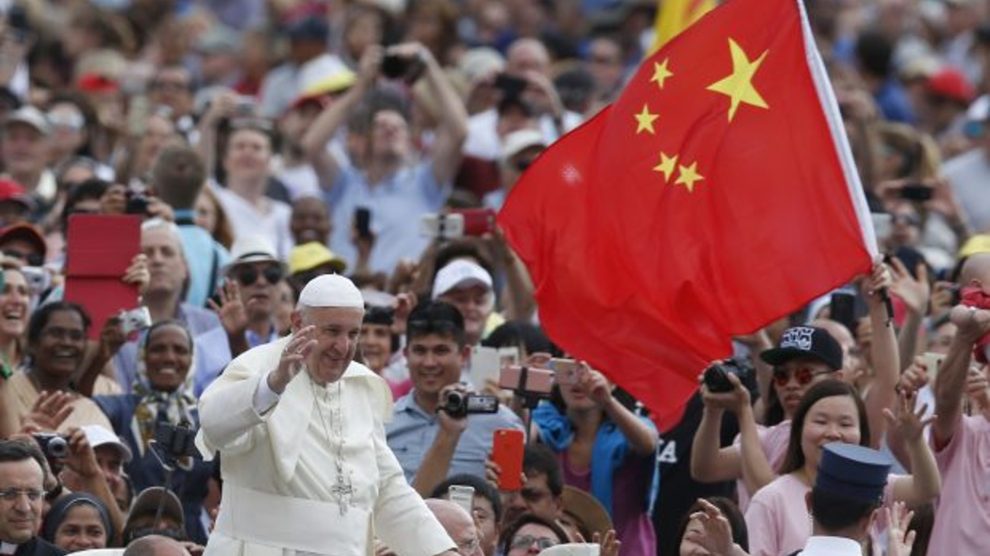It’s a (big) deal. The Holy See and Beijing reportedly reached an agreement on the extremely delicate matter of bishop nominations. The provisional agreement, first struck in 2018, will be extended by another two years – that is, until October 22, 2024.
- The official announcement is expected on Friday, according to Il Corriere della Sera.
- The text of the agreement remains confidential. Still, we know it stipulates that the pope’s appointment of a bishop must be notified to the Chinese side for confirmation.
More than principles. The agreement touches highly sensitive chords at the heart of both institutions – China’s approach to its own sovereignty and its relation with organised religion on the one hand, and the distinction between the “official” (i.e. State-aligned) and “clandestine” (Holy See-aligned) Churches on the other.
- The boundaries between the “official” Church, linked to the PRC, and the “underground” Church, which answers to the pope, have been blurring for years in the daily reality of millions of Chinese Catholics.
Actual results. The 2018 deal was the first official result of decades of underground diplomatic relations. Although it’s experimental in nature and limited to the “ecclesial and religious” level, the agreement is still a noteworthy accomplishment and has produced tangible results.
- In the past four years, there have been no more “illegitimate” ordinations (as in, celebrated by the “official” Church without the Pope’s consent. The latter managed to ordain six, with the assent of Chinese authorities.
- Moreover, Beijing recognised an additional six “clandestine” bishops (chosen in the past by the Holy See but not considered legitimate by the “official” Church).
- “All the Chinese Catholic bishops present in China today are in full and public communion with the Bishop of Rome,” noted Gianni Valente, director of the Vatican’s news agency Fides.
From the ground up. As Pope Francis explained, dialogue with Beijing “is a slow thing, but progress is always being made.” The Holy See’s delegation and representatives of the Chinese government met between late August and early September in Tianjin, in Northern China.
- The progress still pales when compared to the country’s vastness. The government-linked Council of Chinese Bishops numbers 98 dioceses, 4,202 churches and 2,238 “active sites,” with 66 bishops – which leaves a third of the dioceses uncovered.
- The text of the agreement has not been modified, but “can be improved, in agreement with the Chinese authorities,” says the Holy See.
The challenges. As noted by Il Corriere della Sera, there still are resistances and places where officials oppose the new course. That’s the case with Hong Kong’s emeritus Bishop, Joseph Zen – “the most tenacious opponent of dialogue” –, who was arrested in May and is now on trial, which caused the Holy See’s “concern.”
- “Understanding China is a giant thing,” Pope Francis pointed out last month. “We must not lose patience: it takes […] a lot, but we must go ahead with dialogue.”





